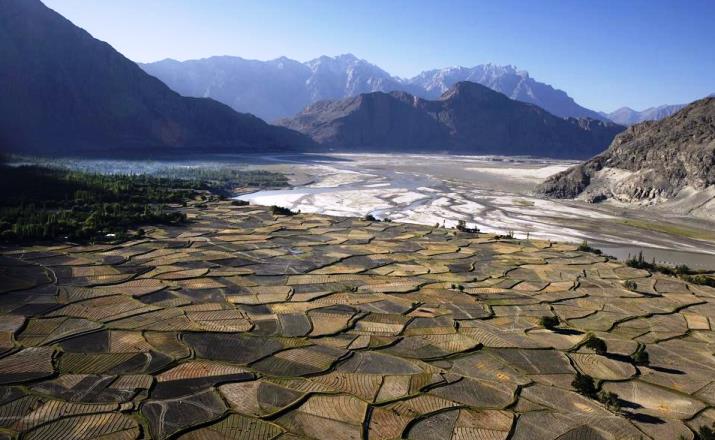By Sana Jamal
ISLAMABAD – As floods are ravaging several parts of Pakistan, climate scientists issue a wake-up call to political leadership to take urgent action on threats from climate change. Experts also warned of more extreme events such as floods and droughts in Hindu Kush Himalyas particularly Indus Basin.
“Time has never been more opportune for the governments of the region to rise up to the reality of climate change” as parts of Pakistan are under severe flooding, said Dr David Molden, Director General of the International Centre for Integrated Mountain Development (ICIMOD).
Dr David was speaking at a three-day climate conference in Islamabad which emphasized on bringing climate change science to policy makers for action on adaptation.
Climate scientists from Pakistan, Nepal, India and Europe working across the Indus River Basin gathered at the conference to discuss and share knowledge on the impacts of climate change on mountain people and the challenges and opportunities for policy and action. The discussion was jointly organized by ICIMOD, Pakistan’s Ministry of National Food Security and Research, Pakistan Ministry of Climate Change, the Pakistan Agricultural Research Council (PARC), WWF-Pakistan, the Sustainable Development Policy Institute (SDPI).
Highlighting the gap in scientific understanding of climate change impact and appropriate adaptation measures, the experts suggested leaders of the Hindu-Kush Himalayas should look beyond political and national boundaries and adopt common solutions to climate change risks. The solution, according to Dr Molden, is to view boundaries in a different way. “Instead of viewing boundaries as barriers separating people, we need to view them as meeting places to develop solutions”, he said.
Pakistan is highly vulnerable to a range of effects associated with climate change which has killed hundreds and affected farmland and animals since 2010. Pakistan is facing floods and torrential rains every year since 2010 worst floods. This year’s flash floods have killed 36 and affected more than 250,000 people. The gravity of situation makes it all the more important for Pakistan to implement effective adaptation policies.

Adaptation means taking suitable action to prevent or minimize the negative effects of climate change as research has shown that well planned, early adaptation action can save lives and money.
Adaptation measures proposed by experts included: application of flood zoning and strict ban on settlements next to vulnerable waterways, introducing mechanisms like REDD+ and the control of construction and tree-cutting, utilization of hydropower resources, multi-pronged approach to address water-energy-food security issues, and provision of adequate funds and mandates to local institutions to implement climate change adaptation strategies.
Climate experts believe that use of science and knowledge is critical to address climate change issues. However, Pakistan is the only country in the region where scientific research and investment in climate science is lowest in the region, said Ifthikhar Ahmad of the PARC.
Impact of climate change on the Upper Indus Basin, one of the world’s most significant river basins, which supports more than 215 million people, was a key concern for climatologists. According to a NASA 2015 report, the Indus Basin aquifer of northwestern India and Pakistan is the second-most overstressed among the 37 largest aquifers on earth.
The Hindu Kush Himalayan (HKH) region extends 3,500 km over all or part of eight countries: Afghanistan, Bangladesh, Bhutan, China, India, Myanmar, Nepal, and Pakistan.
Climate change and related factors would directly impact the region, and especially affect downstream areas. New studies warn that River Indus that flows 3,200 km from Kashmir in the north to the port of Karachi, is at significant risk of flooding in the near future.
“With high climate variability, there are more chances of extreme events, both in terms of droughts and floods”, he said. Thus, “there is an urgent need to share information and data, strengthen monitoring systems to manage these events” and promote local solutions, said Dr Arun Bhakta Shrestha, Senior Climate Change Specialist at ICIMOD.
Therefore, experts suggest, it is crucial to achieve a good integration between science, policy and practice. The key priority for the region should be to implement climate change adaptation measures based on data and knowledge.

